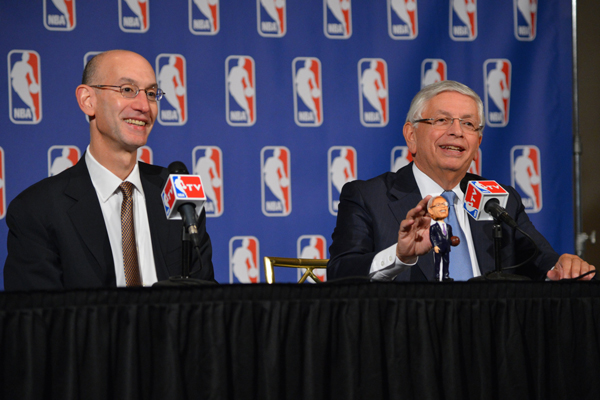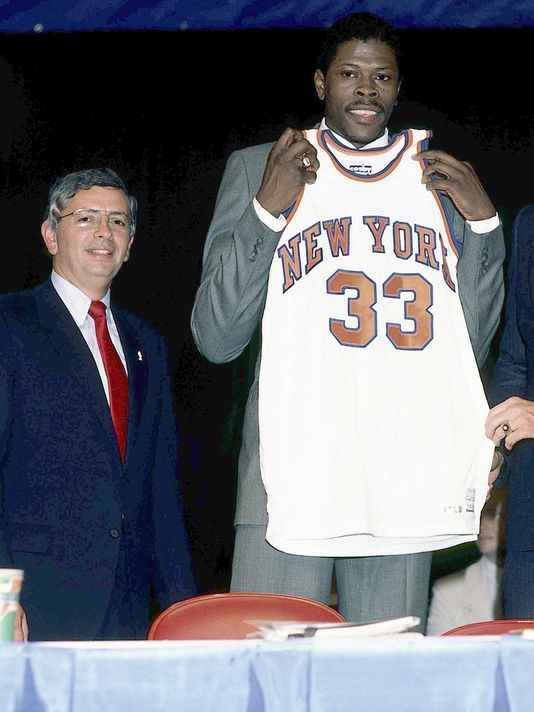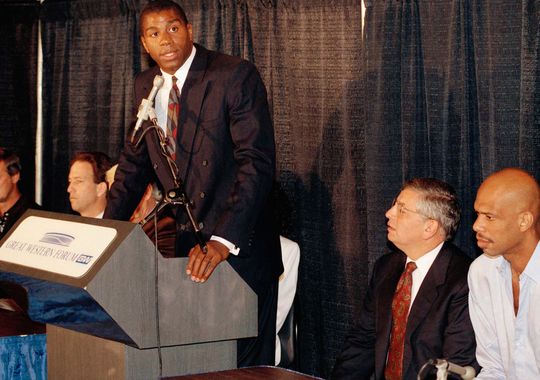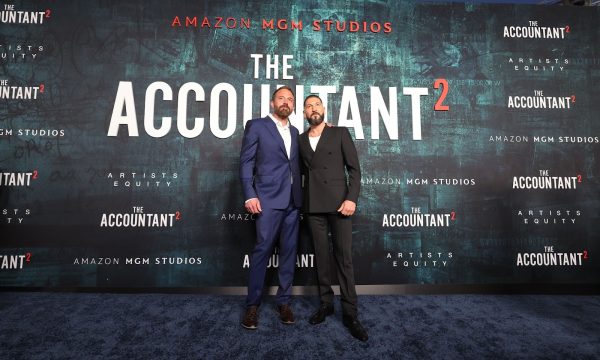At midnight Saturday February 1, 2014, David Stern will cease to be the NBA Commissioner, and authority will quietly pass to his protégé, Adam Silver, the first such transition in 30 years. It is a time for reflections and tributes, for thoughtful appraisals of a figure often regarded as one the greatest commissioners of all time. As he steps down at age 71, Stern leaves the NBA in excellent shape, economically and otherwise. The league is bigger than ever, exponentially more popular and more profitable, all testament to Stern’s brilliance as an executive. We generally evaluate a commissioner’s tenure in cold metrics — in television ratings, attendance figures and revenue growth. Under Stern’s leadership, the league expanded from 23 teams to 30, with revenues increasing more than 30-fold, from $165 million in 1984 to $5.5 billion today. The NBA is now televised in 215 countries, in 47 languages. Basketball is now the second-most popular sport in the world, after soccer. 
Here are a few moments that define Stern’s tenure: June 1985: Stern and the NBA devised the draft lottery system to allow all non-playoff teams a shot at the top pick in the draft as a result of teams tanking in the previous season. Just so happens, Georgetown center Patrick Ewing was the #1 pick and went to the New York Knicks. January 1986: Stern instituted a policy involving suspensions and bans for players with drug issues, and two-time All-Star John Drew was the first player banned for life. October 1988 & October 1989: Stern and the owners decided to add four new teams in two years. And the big push came in Florida, where the Miami Heat (1988) and Orlando Magic (1989) gave the league its first teams in the rapidly growing state. The Charlotte Hornets (1988) also were formed, and the Minnesota Timberwolves (1989) returned the NBA to a city once home to the Minneapolis Lakers. November 1991: Stern sat next to Los Angeles Lakers star Magic Johnson on the dais when Johnson announced he had tested positive for HIV.
 The news conference had ramifications well beyond the NBA and led to Johnson’s premature retirement. He would come back four seasons later to play 32 games with the support of Stern and many others, as more was known about the transmission of the disease. July 1992 The Dream Team: Allowing professional athletes in the Olympics, Johnson, Michael Jordan and Larry Bird led Team USA on the court, but Stern’s influence helped this happen. The 1992 Olympics Gold Medal in Barcelona proved to be a major turning point in international basketball, as the NBA expanded its popularity beyond this country and branded its superstars internationally, one of Stern’s most important contributions. July 2007: Tim Donaghy resigned after 13 seasons of refereeing NBA games when reports came to light that he had been making calls to alter results for gambling purposes. Stern took the position that Donaghy was working alone and helped the FBI with its investigation, which led to prison time for Donaghy.
The news conference had ramifications well beyond the NBA and led to Johnson’s premature retirement. He would come back four seasons later to play 32 games with the support of Stern and many others, as more was known about the transmission of the disease. July 1992 The Dream Team: Allowing professional athletes in the Olympics, Johnson, Michael Jordan and Larry Bird led Team USA on the court, but Stern’s influence helped this happen. The 1992 Olympics Gold Medal in Barcelona proved to be a major turning point in international basketball, as the NBA expanded its popularity beyond this country and branded its superstars internationally, one of Stern’s most important contributions. July 2007: Tim Donaghy resigned after 13 seasons of refereeing NBA games when reports came to light that he had been making calls to alter results for gambling purposes. Stern took the position that Donaghy was working alone and helped the FBI with its investigation, which led to prison time for Donaghy. 














